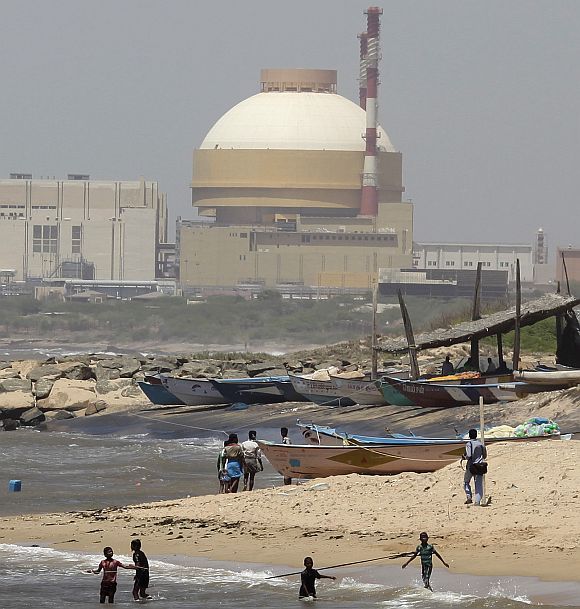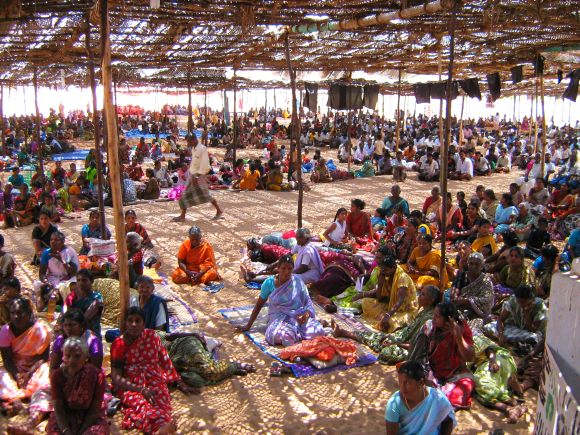 The Kundankulam Nuclear Power Plant attained its full generation capacity and became the first nuclear plant in the country to generate 1,000 MW of power on Saturday, its site director R S Sundar said.
The Kundankulam Nuclear Power Plant attained its full generation capacity and became the first nuclear plant in the country to generate 1,000 MW of power on Saturday, its site director R S Sundar said.
"At 13.20 hours, Unit I of Kudankulam Nuclear Power Plant started generating its full capacity of 1,000 MW of power. We will run it for some more time before we stop the unit for conducting some tests as mandated by the AERB (Atomic Energy Regulatory Board)," he told PTI over phone.
He also said that of all the sources of power available in the country, units of KNPP had the capacity to produce large amounts of power from a single unit.
"If you take other plants, they can produce only around 540 MW of power. In the case of thermal plants it could go up to 660 or 680 MW. Another 700 MW unit is presently under construction. So KNPP is the first unit in the country to produce 1,000 MW of power," he said.
Later in a statement, Sundar said, "Power has been achieved 100 per cent" after conforming to all criteria for system performances as per design requirements, meeting all stipulated statutory and regulatory requirements and final clearance from the AERB, based on the report of observer's team, safety review committee and Russian specialists.
He said this is the 21st nuclear power reactor in the country and India's first pressurised water reactor belonging to the light water reactor category. "KNPP Units 1 and 2 are VVER-1000 type reactors set up at Kudankulam in Tamil Nadu with technical cooperation with the Russian Federation," he said.
On safety issues, he said the KNPP reactors incorporate enhanced safety features ensuring highest level of safety, in line with current international standards. "These are Generation III+ reactors incorporating a combination of active and passive safety systems like the passive heat removal system, hydrogen re-combiners, core catcher, hydro accumulators and quick boron injection system. This combination of multi-layered safety features ensures safety of the plant, public and environment," he said.
Till date, cumulative generation from Unit 1 of KNPP was around 1,900 million units, he said.
KNPP's unit 1 has been contributing to the power-starved Tamil Nadu since October 2013.
The Nuclear Power Corporation of India Ltd has collaborated with Russia to set up two 1,000 MWe reactors at Kudankulam in Tirunelveli district in Tamil Nadu.
Unit 1 attained criticality in July 2013. The power generated from this unit would add 1,000 MW to the southern grid.
Anti-nuclear activists and People's Movement Against Nuclear Energy have been spearheading more than a two-year-old protest against KNPP in Tirunelveli, demanding its closure, citing safety reasons.
Image: The Kudankulam Nuclear Power Plant










